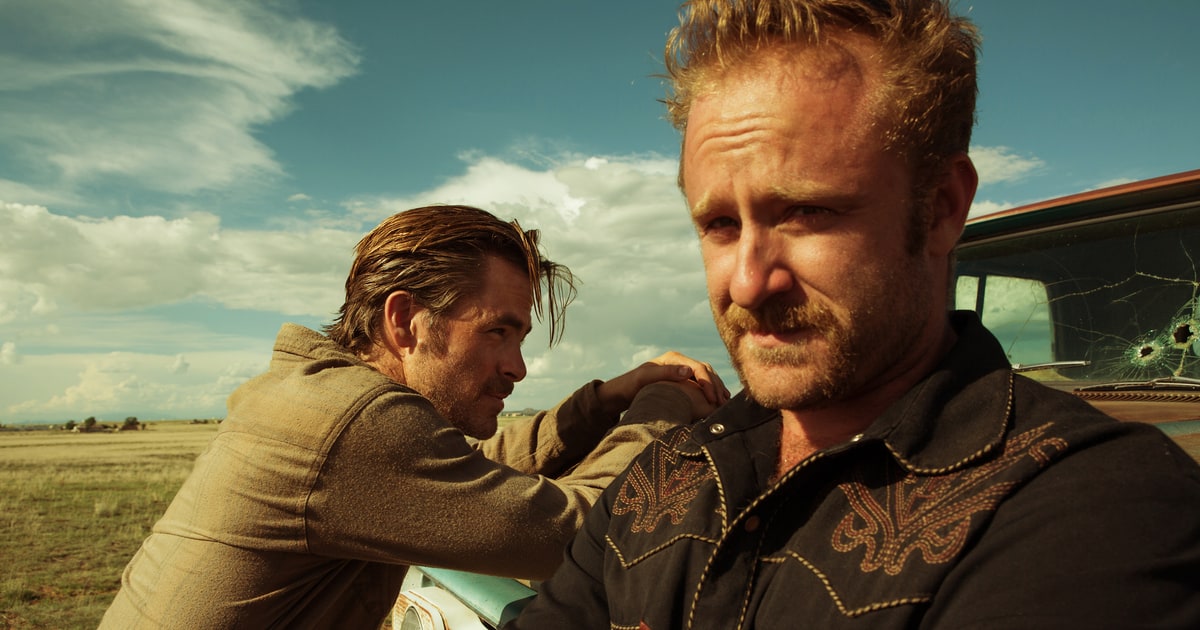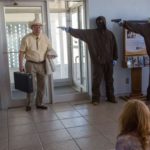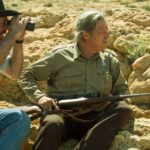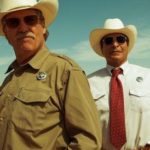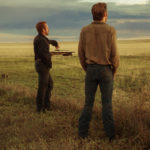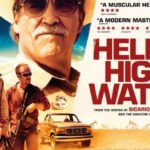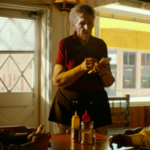The underlying theme of Hell or High Water, a refreshingly unromantisied slow-moving noir-meets-western crime movie, is American rural poverty; without this theme none of the human tragedy depicted here would occur. Two brothers, Toby and Tanner Howard (respectively Chris Pine and Ben Foster) inherit a debt-ridden ranch and embark on a career in heists from the very bank that is threatening to foreclose on them without a sizeable payment, a grudge that ultimately sees one of them dead and the other immune from charges but still under police scrutiny.
It is the human aspect that captures our attention more than the fumbled robberies and poses the question: what would we do if our entire way of life was threatened by banks for no fault of our own?
That question was the same one faced by very many Americans in very recent memory during the global financial crisis, dealt with brilliantly from the banking perspective in The Big Short. They lost their homes in droves, but the farms of Texas and Oklahoma, the breadbasket and heartland of America, run deeper. If the ranches can’t afford to produce the steaks that fuel every household, the crisis affects everyone.
This is reflected in the portrayal of good ole boys Toby and Tanner who steal the loot and eventually resort to killing – accidental at first but then in a glorious outburst of nothing left to lose. If they are not exactly heroes, neither are they entirely antiheroes. Toby and Tanner are cast in a sympathetic light by Scottish director David Mackenzie, who sees them almost as a latter day Bonnie and Clyde with the honourable motives of a self-preserving Robin Hood.
If this sounds grim, trust me when I say that the movie most certainly isn’t. A wry seam of humour runs through Taylor Sheridan’s script, focused mainly on Jeff Bridges‘ blustering and bellicose ranger Marcus Hamilton and Gil Birmingham‘s taciturn Comanche sidekick Alberto Parker, the brunt of all Hamilton’s jokes and bitchy remarks – they behave like an old married couple. The pay-off comes when Parker’s head is in the wrong place at the wrong time as a spray of bullets is fired by Tanner from on his sniper position way above the chasing cops, and suddenly Hamilton realises just what he has lost.
Actually, the script gently coaxes out the natural deadpan humour of the native folks of north Texas. Prime example is the elderly waitress at the T-bone Cafe who asks the rangers what they don’t want: t-bone medium rare is a given.
In the course of the ongoing dialogue there is character development, or at least slow-burn evolution, something that sets this film apart from many of its ilk. The action sequences, including amateurish bank heists that would only work way out in the sticks, plus a gentle chase scene conducted by an informal mob of vigilantes who turn tail when confronted with heavy weaponry, punctuate but don’t dominate the film. Hamilton’s approach is more along the lines of “softly softly, catch monkey.”
There is time and space for the brothers to ruminate on their lot while contemplating the glorious backdrop of rural America. Time for one to discover he loves the power and majesty of being “lord of the plains” while the other conquers his fear and a gunshot wound to realise his responsibilities run deeper, notably to his children and ensuring the ranch is kept running for another generation – and that view is, I suspect, the concern of most Americans struggling to get by and leave an inheritance worth having for their children.
In the hands of other writers or directors the talking would be pared down and the action would be the raison d’être. Had that been the case, this would be much less of a movie. It reminds me in a noirish fashion of the Coen brothers’ spare but taut debut, Blood Simple, and through the stunning American landscape of Badlands. While neither are like-for-like, both are worthy parallels and intended as compliments.
That said, this is a relatively minor film, not an epic to dominate the Oscars. Quietly observed movies typically earn a nod but never sweep the board for the gongs. Perhaps it is a little too laid back and needed to turn the power up a notch or two, and maybe hone down those Texan accents a tad for the international market, but I’m happy to see a film that avoids audience manipulation but makes its point with intelligence. Goodness knows, there’s not too much of that quality in evidence among new releases these days.

